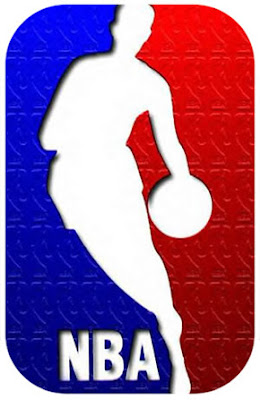sp6r=underrated wrote:There are too many teams in small markets in the NBA. Five of the 20 largest metropolitan areas in the U.S. have no NBA team but 4 teams are in metropolitan areas outside the top 40.
A lot of posters on realgm want the NFL system because they think it has created parity in the NFL to a greater extent than the NBA. I think it is just the shorter schedule, superstar factor, and single elimination tournament that create the perception of more parity in the NFL. I also think the NFL system is popular with fans because of jealousy a lot of fans have for players. Many people resent star athletes who make millions and still try to control their career. I call these people the STFU and play crowd.
I don’t like the NFL system.
Unguaranteed contracts are unfair because teams can choose to not to honor a contract if they feel the player isn’t performing, but players can’t walk away from the contract if they feel they have over-performed.
The hard cap forces teams to break up their cores in the NFL. This could be devastating in the NBA due to its smaller rosters.
A franchise tag to me is inherently unfair because it treats the player as the property of the team they play for. In the NBA, it would be used to stop superstars from ever reaching free agency. Cleveland would have tagged him forever. I don’t like the idea of superstars being shipwrecked on a team they don’t want to play for.
Under the current rules teams can keep the player they drafted for seven to eight years before they reach free agency. It is very hard for me to accept the idea that a player can’t become an unrestricted free agents after that long of a period of service. Finally, I don’t think the franchise tag can work in the NBA effectively. Basketball players have a lot more power over if their team wins or loses than football players. Hold outs in football are generally annoyances. Hold outs in basketball would be devastating.
Finally, I don’t like the NFL system because it’s goal seems to be to punish well run organizations and reward poorly run ones.
My idea to address superstar movement by thinking of ways to make players want to play in the city that drafted them. I think the simplest thing to do for the NBA would be to get rid of maximum salaries while keeping the soft cap and Bird rights. Under this scenario, Cleveland would have offered Lebron 40 million to stay in Cleveland giving them a huge advantage in free agency that no other team has. Most players under these rules will choose to re-up with the team that signed them. I don’t think anyone should complain about the players who did leave under these rules.
Next is my radical idea. The NBA has too many teams in smaller markets. The NBA myopically moved to smaller cities because they could force those towns to build them stadiums. This is good in the short run but bad for long-term popularity of the league. Metropolitan Seattle is larger and richer than Oklahoma City. It hurts the league to be in these smaller cities.
It also creates major problems with regards to the players. NBA players are extremely talented individuals. Literally they are in the 99.999 percentile of ability in their field. Individuals who are still talented and valuable generally will be able to get what they want. Smaller cities aren’t as attractive to players who would prefer to play in larger markets.
One way to make it more likely that players stay on their home team is to have more large market clubs and less small market clubs. This would never happen but IMO would be better for the league. I found it a fun exercise to realign the league.
Atlantic Division
1. Boston Celtics (4.6 million people)
2. New York Knicks (19 million people)
3. Brooklyn Nets (19 million people)
4. Toronto Raptors (4.6 million people)
5. Montreal Hornets (3.4 million people)
Central Division
1. Chicago Bulls (9.5 million people)
2. Chicago Jazz (9.5 million people)
3. Philadelphia 76ers (5.9 million people)
4. Washington Wizards (5.5 million people)
5. Detroit Pistons (4.4 million people)
SouthEast Division
1. Miami Heat (5.5 million people)
2. Orlando Magic (2 million people)
3. Tampa Bay Cavaliers (2.7 million people)
4. Atlanta Hawks (5.4 million people)
5. Charlotte Bobcats (1.7 million people)
Spreadout Division
1. Vancouver Pacers (2.1 million people)
2. Seattle Supersonics (3.4 million people)
3. Portland Trail Blazers (2.2 million people)
4. Denver Nuggets (2.5 million people)
5. Minn. Timberwolves (3.2 million people)
California Division
1. Los Angeles Lakers (12.8 million people)
2. San Francisco Grizzlies (4.3 million people)
3. Golden State Warriors (4.3 million people)
4. San Diego Kings (3 million people)
5. Los Angeles Clippers 2.0 (12.8 million people) Stearling sells team
SouthWest Division
1. Dallas Mavericks (6.4 million people)
2. Houston Rockets (5.8 million people)
3. Phoenix Suns (4.3 million people)
4. San Antonio Spurs (2.0 million people)
5. St. Louis Bucks (2.8 million people)
The players would love this. A far higher percentage of clubs are now in larger cities and the most popular areas of the country to live are significantly more represented. Southern California, NYC, Chicago, and the Bay Area now have 9 ball clubs instead of 5. I’m not worried about the market saturation issue. A lot of people think that because of the Clippers two teams in one city won’t work. I think the failure of the clippers is solely due to bad management. Baseball shows you can have two teams in one city and have both be successful.
The realignment I’ve proposed also improves the size and quality of the mid-market clubs. I have dramatically reduced the number of cities in the NBA that would be unappealing to NBA players. Vancouver and Montreal are admittedly stretches but I still believe you can make those cities appealing to NBA players once they actually go there. As a result of this realignment, most players will get drafted into the types of larger cities that are appealing to players. My hope is that players would only leave if management stinks which is fine to me. Poorly run teams should lose their superstars.
I think this would be a good deal overall for fans, but I’ll acknowledge it stinks for the cities the NBA would be leaving. Simply put more people would have access to NBA games live.
The league benefits in a lot of ways. The TV deal is better because there are less small markets. I’ve also created more natural rivals. Chicago and NYC would now have true cross city rivalries and so would LA as Stearling no longer owns the team. The Raptors now have a natural rival in the Montreal Hornets. The pacific northwest rivalry is renewed and the California division would have cool state bragging rights.
I tried to accomplish the goal of discouraging superstar movement by making players actually happy to play for the club they got drafted by rather than trying to figure out ways to force unhappy employees to work. Those players that did move probably had good reason to do so.
Actually, you are a bit short on the Toronto numbers. The Toronto GTA is around 5.5 million now and 8.1million in the "golden hoseshoe". It also doesn't include the population just west and south that also support the Raptors. They definitely have the numbers in the area to support a team.
For Montreal, the problem is that the GMA population is half French and the other half has a high immigrant "Allophone/French" poulation (Allophone = immigrant that speaks their native language plus French as their working language). It is a marketing nightmare for sports teams as shown by the Expos when they were here. Half their fanbase was from the smaller "Anglais" portion of the population and half from the larger "French/Allophone" population. When the Expos directed their marketing to almost exclusively the French population, it just did not draw enough percentage to support the team. Not saying that all these people don't like basketball, but realistically, the draw would for basketball would be difficult and run into the same issues as the Expos had.
















